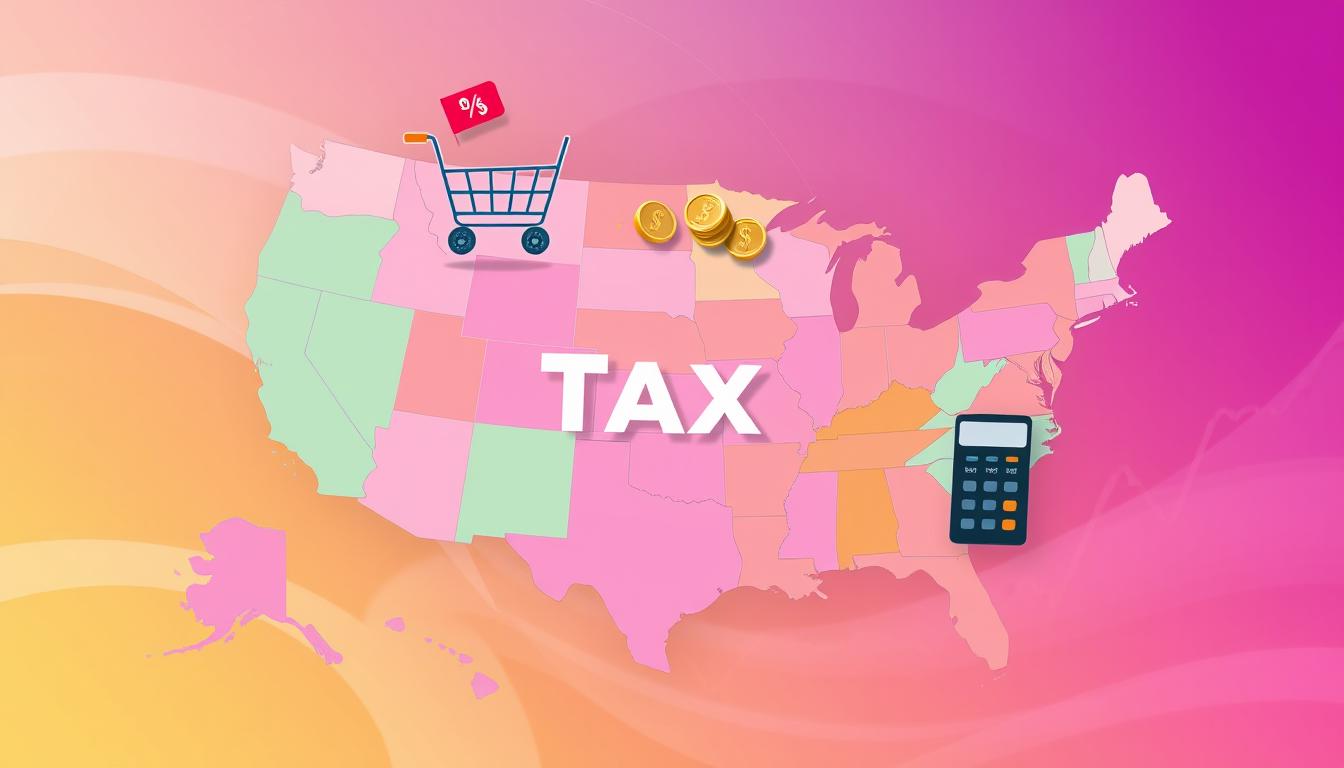Yes, you can file your taxes on April 15; it's the standard deadline for individual returns. If you're filing electronically, make sure you submit it by 11:59 p.m. local time. Paper returns must be postmarked by that date, too. If you owe taxes, be aware that both your return and payment are due to avoid penalties. In some cases, filing for an extension can give you extra time, but remember, that extension doesn't apply to payments. If you want to learn more about extensions and potential penalties, there's a lot more to consider.
Key Takeaways
- Yes, you can file your taxes on April 15; it's the standard deadline for individual tax filers.
- Electronic filing must be completed by 11:59 p.m. local time on April 15.
- Paper returns must be postmarked by April 15 to be considered timely.
- If April 15 falls on a weekend or holiday, the deadline shifts to the next business day.
- Americans abroad have an extension until June 16 for filing and payment.
General Tax Filing Deadline

Filing your taxes by the April 15 deadline is crucial for staying compliant and avoiding penalties. For most individual filers, this date marks the end of the tax year, and you need to submit your returns on time.
If you're filing electronically, keep in mind that the deadline is 11:59 p.m. local time on April 15. If you choose to file a paper return, it must be postmarked by this date.
Be aware that if April 15 falls on a weekend or a legal holiday, the deadline shifts to the next business day. This applies whether you're in the U.S. or abroad—Americans living overseas get an extension until June 16. Americans Abroad have until June 16, 2025, to file and pay.
For business filers, the deadlines differ. Multimember LLCs, S corporations, and partnerships face a March 15 deadline, while C-corporations follow the April 15 date unless they've filed for an extension.
Make sure you gather all necessary forms, like Form 1040 for individual filers or Form 1120 for C-corporations. Staying organized and adhering to these deadlines helps you avoid unnecessary stress and potential penalties.
Filing Extensions and Deadlines

If you realize you need more time to complete your tax return, requesting a filing extension can be a simple solution. To get an automatic six-month extension, you'll need to file IRS Form 4868 by April 15.
Businesses typically use IRS Form 7004 for the same purpose. You can file electronically using the IRS e-file system, by mailing a paper form, or with the help of a tax professional. The best part? There's no cost to request an extension, and most requests are granted automatically without needing to provide a reason.
Keep in mind that while an extension gives you more time to file, it doesn't extend your deadline to pay any taxes owed. If you're granted an extension, your new deadline to file is October 15. Additionally, it's important to note that extensions do not extend the time to pay any taxes owed, so ensure you pay your estimated taxes by the original deadline.
Be aware that special circumstances, like major disasters, may allow for further extensions. Additionally, state tax extensions usually align with federal timelines, so check your state's requirements.
Payment Requirements by April 15

As April 15 approaches, it's crucial to be aware of your payment requirements to avoid penalties and interest. Both your tax return and any required payment are due on this date. If you owe taxes, make sure your payment is postmarked or transmitted online by midnight on April 15 to be considered timely.
For those making estimated tax payments, the first payment for the year is also due on April 15. You'll follow a quarterly schedule with subsequent payments due on June 15, September 15, and January 15 of the following year. You can make payments online, through tax software, or by mail using Form 1040-ES. Additionally, keep in mind that estimated tax payments are due on April 15, so ensure you're prepared for this obligation.
Keep in mind that if you miss the payment deadline, you could face penalties and interest, which can add up quickly. An extension to file your return doesn't extend your payment due date, so be proactive.
Also, if you're a fiscal year filer, or if you're in a special category like farmers or nonresidents, check for any specific due dates or forms that apply to you. Stay organized to ensure you meet all payment requirements by April 15!
Retirement Account Contributions

Maximizing your retirement account contributions can significantly impact your financial future, so it's essential to understand the rules and deadlines. For the 2024 tax year, you can make contributions to your retirement accounts until April 15, 2025. Keep in mind that filing an extension for your tax return doesn't extend this contribution deadline.
If you're under 50, the maximum contribution limit is $7,000 for both 2024 and 2025. If you're 50 or older, you can add an extra $1,000 as a catch-up contribution, bringing your total to $8,000. Remember, your contributions can't exceed your taxable earned income, which includes wages and self-employment income. You can contribute as long as you have earned income, regardless of your age.
If you're married and filing jointly, you can base your contributions on your combined earned income. Additionally, contributions to traditional IRAs may be tax-deductible, while Roth IRA contributions are made with after-tax dollars and qualify for tax-free withdrawals if certain conditions are met. It's also important to note that annual contribution limits are set for various retirement accounts, ensuring that individuals save effectively for their future.
Stay informed to maximize your retirement savings effectively!
Business Tax Filing Dates

Navigating business tax filing dates is crucial for maintaining compliance and avoiding penalties. If you operate a calendar year corporation, remember that your Form 1120 is due on April 15, 2025. Additionally, keep in mind the November 1, 2024 deadline to request a Transmitter Control Code for e-filing, as it is essential for smooth submission of your forms.
For fiscal year corporations, the deadline typically falls on the 15th day of the fourth month after your tax year ends. For example, if your fiscal year ends on June 30, mark September 15 on your calendar.
If you're running an S-corporation or partnership, you need to file Form 1120-S or Form 1065 by March 15, 2024. Keep in mind that if you file for an extension, the new deadline is September 15.
Also, you'll need to distribute Form K-1 to partners by the filing deadline unless you've filed for an extension.
As a sole proprietor, your Form 1040 with Schedule C must be submitted by April 15, 2024, but you can request a six-month extension to October 15, 2024.
Don't overlook deadlines for W-2 and 1099 forms either—they're due by January 31, 2025.
Stay organized, and you'll keep your business on track!
Penalties for Late Filing

Filing your taxes late can lead to significant penalties that add up quickly. If you submit your return after the due date or extended due date and owe taxes, you'll face a failure-to-file penalty of 5% of the unpaid taxes for each month or part of a month that your return is late, capping at 25%.
If you're more than 60 days late, you'll incur a minimum penalty of either $485 for 2024 or 100% of the tax owed. Additionally, if you don't pay the taxes by the due date, you'll face a failure-to-pay penalty of 0.5% of the unpaid taxes for each month, which can also reach 25%. If both penalties apply in the same month, your combined penalty will be 5%.
To highlight the importance of timely filing, remember that filing extensions can help mitigate penalties if you pay your taxes on time. Interest on unpaid taxes compounds daily from the due date until fully paid, further increasing your financial burden.
To avoid these penalties, it's crucial to file your tax return and pay any owed taxes on time. If you can't pay immediately, consider setting up a payment plan with the IRS to help manage your obligations.
Importance of Timely Payments

Timely tax payments are crucial for maintaining a healthy financial standing and avoiding unnecessary penalties. By paying your taxes on time, you not only steer clear of high-interest charges but also strengthen your relationship with tax authorities like HMRC. This proactive approach enhances your business's credit rating, making it easier to secure loans or funding when you need it most. Moreover, timely payments help you manage your finances strategically by reducing unnecessary costs. With recent reductions in interest rates, such as HMRC's late payment interest rate dropping to 7.5%, you can take advantage of these savings. By avoiding late payments, you protect your business's financial health and improve cash flow management, preventing unexpected charges from piling up. Additionally, consistent on-time payments can enhance your business credit rating, giving you more leverage in future financial dealings.
To ensure timely payments, consider automating your payment processes through bank or accounting software. Set manual reminders for tax deadlines and keep accurate financial records to prepare your tax returns efficiently.
State Tax Deadline Variations

Understanding state tax deadline variations is essential for effective tax planning. While the federal tax deadline typically falls on April 15th, many states have different due dates for corporate returns. For example, in Alabama, Arkansas, Illinois, and Colorado, corporations have an extended deadline of one month after the federal due date. Arizona offers a slightly longer extension, giving corporations seven months post-original due date.
Other states, like Louisiana, provide a two-month extension for partnerships, while New Jersey requires corporate returns to be filed 30 days after the federal deadline. Ohio aligns local municipal income tax due dates with federal extensions, and Pennsylvania's corporate returns are due on the 15th of the following month after the federal extension ends. Additionally, keep in mind that fiscal year taxpayers have their deadlines set for the 15th day of the fourth month following their fiscal year-end.
If you're a partnership or an S-Corporation, extended returns are due by September 16, 2024, while C-Corporations have until October 15, 2024. The federal income tax deadline was also shifted to July 15, 2020, due to the pandemic, which impacted many state responses. Always check your specific state requirements to avoid surprises!
Steps After Missing the Deadline

Missing the tax deadline doesn't mean you're out of options. You can still file your taxes even though the deadline has passed. If you're expecting a refund, you won't face any penalties or interest. However, if you owe taxes, be prepared for potential penalties and interest charges that can accumulate quickly.
Remember, you can't request an extension after the deadline, so act fast. If your return is more than 60 days late, the minimum penalty could be as much as $485 or 100% of the tax owed, whichever is smaller. To minimize penalties, pay as much as you can when you file. Explore payment options like loans or installment agreements if you owe a significant amount.
If you have a reasonable cause for missing the deadline, the IRS might waive penalties. Don't hesitate to reach out to them for assistance; they can help you find payment solutions. Additionally, filing late can lead to unexpected tax assessments from the IRS, so it's important to address your situation promptly.
Keep in mind that continued non-compliance can lead to accumulating interest and even bigger penalties. The sooner you address your late filing, the better off you'll be in the long run.
Frequently Asked Questions
Can I File My Taxes Early Before April 15?
Yes, you can file your taxes early before April 15. The IRS starts accepting returns in late January, giving you the chance to get ahead.
Filing early locks down your Social Security number, reducing the risk of identity theft. It also speeds up your refund and gives you more time to gather necessary documents.
What Happens if I File My Taxes After April 15?
If you file your taxes after April 15, you'll face late filing penalties, which can amount to 5% of your unpaid taxes for each month you're late, up to 25%.
If you're over 60 days late, you might incur a minimum penalty of $485 or the total tax due.
Additionally, you'll face late payment penalties of 0.5% per month on any unpaid tax.
It's best to file as soon as possible to minimize penalties.
Are There Exceptions to the April 15 Deadline?
Yes, there are exceptions to the April 15 deadline.
If the 15th falls on a weekend or holiday, you get an extension to the next business day.
In certain states like Maine and Massachusetts, the deadline can shift to April 17 due to local holidays.
Additionally, if you're affected by a declared disaster, you may qualify for a longer extension, so check with the IRS for specifics.
Can I E-File My Taxes on April 15?
Yes, you can e-file your taxes on April 15. As long as you transmit your return by midnight, the IRS considers it filed on time.
Using approved tax software makes the process smooth, and you can even set up electronic payments directly from your bank account.
E-filing not only speeds up processing but also means you won't need to send in a paper copy.
Just make sure to double-check your details before submitting!
How Can I Track My Tax Return Status After Filing?
To track your tax return status after filing, use the IRS's "Where's My Refund" tool on their website or the IRS2Go app.
You'll need your Social Security Number, filing status, and refund amount. If you prefer, you can call the IRS, but be ready for long wait times.
For state taxes, visit your state revenue website for specific tracking options. Always keep your filing details handy for quick reference.
Conclusion
In conclusion, you can file your taxes on April 15th, but make sure you're aware of all the requirements and potential penalties. If you need more time, consider filing for an extension, but don't forget about your payment obligations. Remember that deadlines can vary by state, so stay informed. If you miss the deadline, act quickly to minimize any penalties. Staying organized and timely with your tax filing can save you stress and money in the long run.









